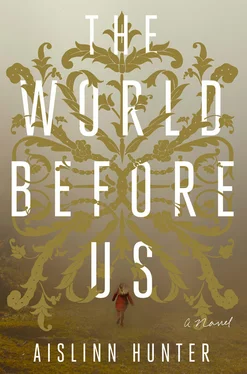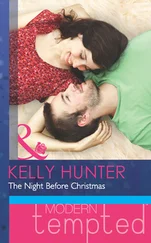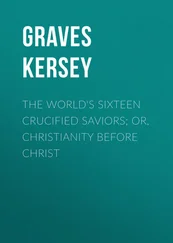Still, for those of us who want to make sense of things, there is constant learning. Time may have swept past us but we are caught in its gusting: we read the papers, watch the telly, listen in on conversations in cafés and tube stations, stand outside strangers’ windows observing them as they eat alone in the quiet burrow of their thoughts. Some of us have even gone to school, studied particular jobs, ridden in ambulances; one spends nights following vagrants as they tread from the city’s edge into the local park. In this way we have learned new words and new ideas, although the knowledge we gain is sometimes woolly. One of us can describe the spark that lit the universe, another knows clock workings, another listens to opera, one loves cowboy films, another the art of flower arranging. We understand the principles of radio waves and motors and satellite relays, even if we cannot say exactly how such phenomena operate. Meanwhile our own knowledge is lost or buried, our hands emptied of their work; even the accents that once shaped our mouths have been smoothed like stones scuttled on the banks of a whisking river.
We do not know what will happen when the Chester closes. Ask us what shape certainty takes and we will all point to a different corner of the museum: to the pendulum of the longcase clock, to the black stones of the birds’ eyes, to the teacups in the upper gallery, to books, locks of hair, dress silk, to the computer in Jane’s office, or the cabinet of milkweed and wild strawberry glass models made in a factory between wars. We do not know how to recover our histories, to identify what or whom we loved. We cannot see ourselves except as loose human forms — like those caught moving down the street in the museum’s early Victorian photographs, figures whose blurred shapes become clearer the longer you look at them. We only know that we are drawn to certain objects, places and people, and that we are bound to Jane like the Thale butterflies in the natural history hall — pinned to the boards in their long glass cases.
The sun is out when Jane leaves the flat to walk the three blocks to the tube station. It glints off the stand of bicycles, glides over the pastry shop window. At the end of the street we turn and follow Jane down the steps of the Underground through the short stretch of semi-darkness that divides the daylight above and the fluorescent light below. We feel a sense of having done this before every time, though we are uncertain whether this sense comes from the repetition of the act itself or an echo from some other conveyance in our lives.
Below ground the station is crowded, and wedged together we shuffle onto the train, using the doors because even though they are unnecessary to us, they are a convention we remember. Once settled, some of us read the papers over people’s shoulders, others watch the flares of tunnel light sweep past the windows. The boy amongst us flits the laces of a young girl’s shoe; the poet sways in the aisle, caught up in a daydream. All of us aware of each other the way you are after becoming accustomed to a dark room. After all, every presence has a kind of weight, something felt: moods and shifts and feelings, a steady pulse of being.
Jane has found a seat in the middle of the carriage between a young man playing a game on his mobile and a tourist with a backpack wedged between his knees. There is a woman in front of them holding on to the rail, a plastic bag that smells of the apricots and peaches within it swinging from her wrist. We notice all of this but Jane does not. She is staring at the floor trying to imagine what exactly will happen when she and William meet.
When she is quiet like this, when her thoughts are steady, we can follow them almost the same way we do when we will ourselves into her dreams. It’s like being in a valley in winter: the sound of a branch snapping, the shish of an icicle plummeting from a tree, amplified. This is why we’re here: because Jane thinks about us almost as much as she thinks about herself, because the distance between her life and ours is not as great as with others and because we are lost and Jane is the closest thing we’ve got to a map. And she is a good archivist, has a willingness to navigate history, to consider its blank pages. But history is tricky. Jane thinks it is a buffer, a static place that sits obediently between now and then — something she can pass through, the way people walk through the natural history hall or the upper galleries of the Chester Museum. But we know she is wrong, and we feel bad about that. History is shifty; it looks out for itself, moves when you least expect it.
The last time William Eliot touched Jane they were standing in a field in Yorkshire at a gate that marked the start of the Farrington botanical trail. He’d placed his left hand lightly on the back of her bare neck, an adult innocently guiding his daughter’s sitter through a passageway. It was 1991, and Jane was fifteen years old and wearing a blue fluted summer dress and new black ankle-strap shoes that she worried would be scuffed by the end of the walk. She was trying to catch a glimpse of the estate house that sat adjacent to the woods, craning her neck toward a gap in the hedge, when William said, “Come on, this way, we can walk by Inglewood House later,” his cool fingertips suddenly grazing her hot skin. She can still feel it sometimes: the light press of his thumb in her hairline, his body ghosting behind her.
That morning she’d spent an hour in front of the bathroom mirror tying her hair up, then down, then up again, putting on lip colour she hoped her grandmother wouldn’t notice, changing her dress twice. When she was ready, she’d walked the two blocks between her grandparents’ South Kensington house and the Eliots’, trying not to bite her lip. William had answered the door in a collared shirt and beige trousers, a towel in his hand, his short brown hair still wet from the shower. He stood in the doorway longer than usual, as if over the span of a day and a half he’d forgotten what Jane looked like — her thick fringe and serious expression — and was trying to put her into context. Jane, flustered, had blushed. She’d wanted this exact kind of looking for the two weeks she’d been coming to babysit. Then he grinned at something, some private thought she sensed had nothing to do with her, and jutted his chin in the direction of the kitchen—“Your charge awaits, Miss Standen”—ruffling his hair with his towel and heading upstairs.
Lily had glanced up when Jane came into the kitchen. The curtains on the French doors were tied back so the room was brighter than usual. The counters and sinks were spotless because it was Sunday and the cleaning lady William had hired while Lily’s nanny was in Spain had been coming in on Saturdays. Seeing it was just Jane, Lily went back to running her blue crayon over the side of the ceramic milk jug, her cereal bowl half full in front of her, a few slices of apple scattered around the placemat.
“Need some help with your drawing?”
The girl tilted her head as if she was still unsure how much authority Jane had or how useful she was. She inspected the crayons spread out around her juice box, rolled the red one Jane knew she liked best under her palm a few times and then said, “Okay.”
“Hmm. How about we do it on paper? Then we can draw something for your dad.”
Lily glanced toward the entry where she could see William. He was running up and down the stairs, dropping specimen bags and wellies by the door. The excursion was to be part fun, part field trip. William was finishing a research proposal on the Victorian plant hunter George Farrington and his estate gardens in Inglewood and wanted to take a last look at the original plantings along the old estate trail before he submitted the final application. He only had a week before the deadline and the drive was four-plus hours each way, so he’d invited Jane for a day in the country to help with Lily and to thank her for filling in for Luisa, who’d had a family emergency back in Spain.
Читать дальше












